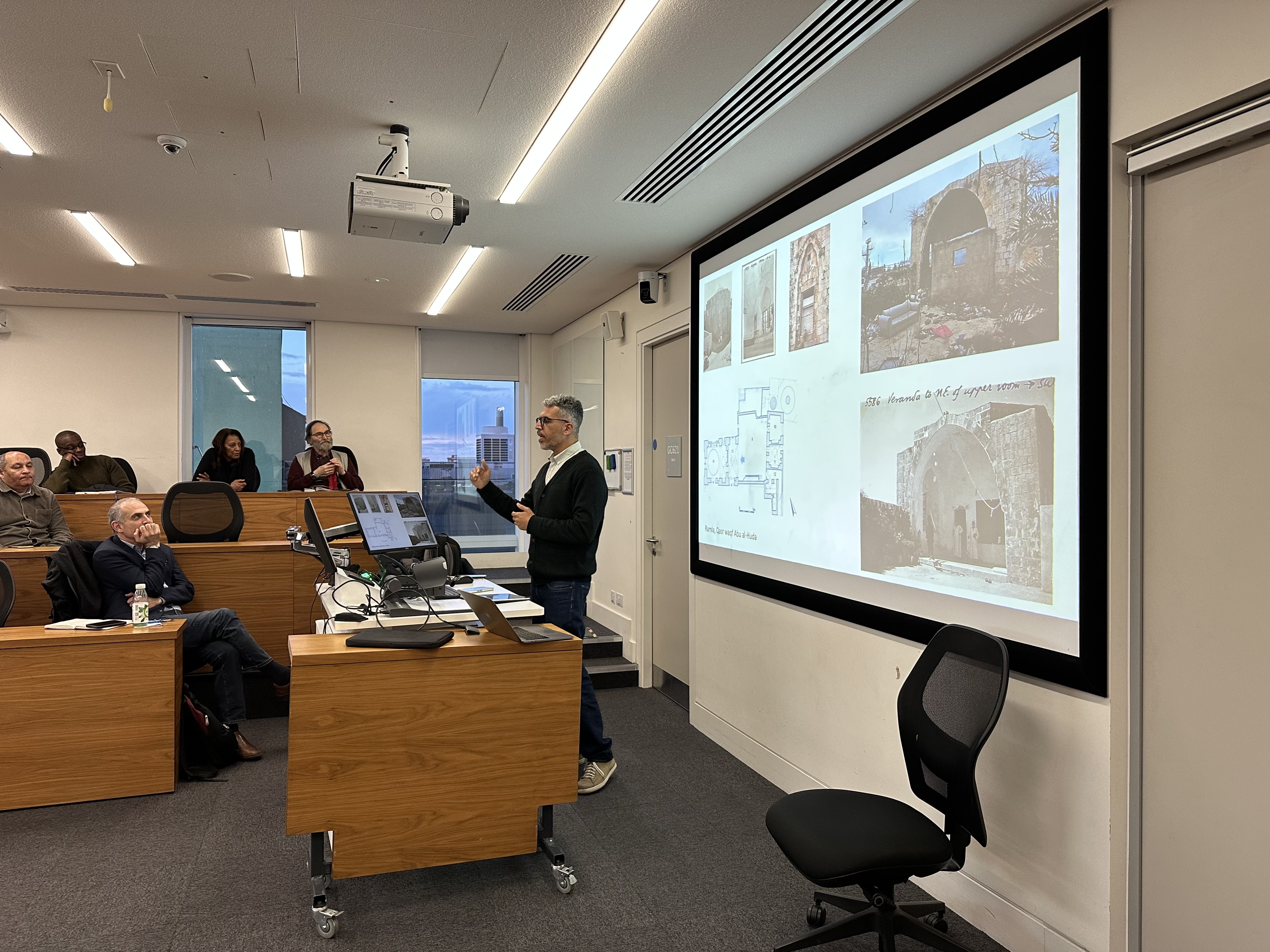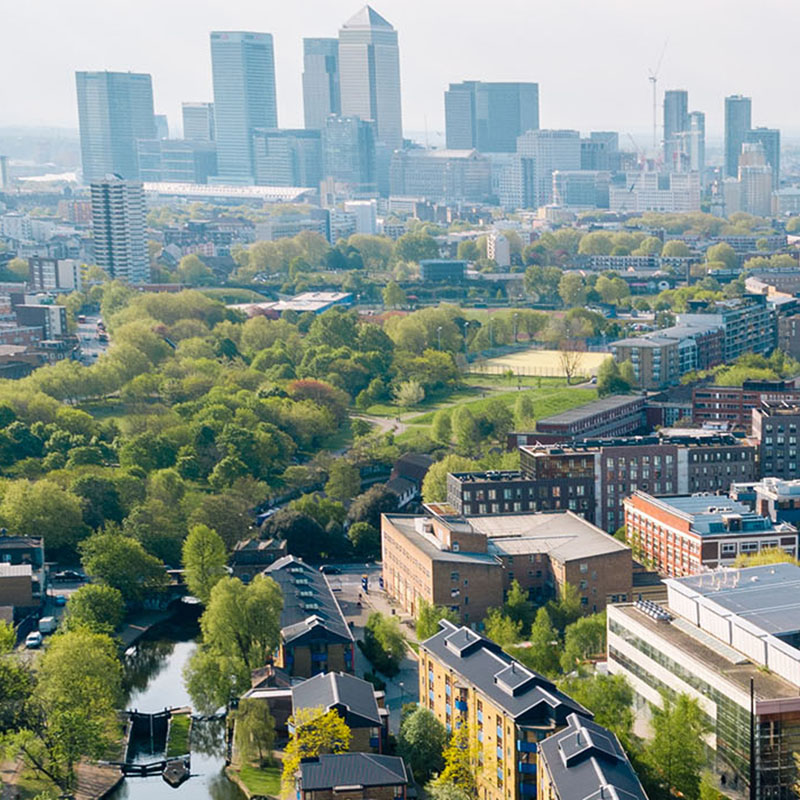The City Centre
Welcome to the City Centre
Our affiliate members include staff, researchers, visiting scholars and postgraduate students at Queen Mary as well as The University of London in Paris (ULIP). The City Centre has a dedicated seminar room in the Department of Geography and Environmental Science that can be used for teaching, meetings and events.
We welcome inquiries from prospective students and researchers, particularly those whose work aligns with any of our current research themes. Outside parties are also encouraged to contact us with ideas for collaboration or partnership.
Upcoming Events
We are currently working on the organisation of new events. Please stay tuned!
Past Events
Welcoming Cities? Urban Migration Policies in the Hostile Environment. 28 April 2025.
- Cities have long been seen as the site of progressive politics where national hostility towards migrants might be ameliorated. However, with the rise of right-wing populism and openly racist authoritarian governments, cities are now under strain. In the UK, austerity and hostile environment policies make it increasingly difficult for cities to support precarious migrants. The criminalization of solidarity and restrictions on rights to protest further increase pressure. This shifting context raises questions about what political potentials might be opened or foreclosed in cities that openly declare themselves ‘sanctuary’ or ‘welcoming’ cities and why some cities choose to take this path. What is the often unseen work that goes into creating and maintaining a ‘sanctuary’ or ‘welcoming’ city? What can they really achieve despite the huge limitations on their budgets and legal/political power? How might municipal governments, grassroots activists and migrants themselves find new ways to contest hostile environment policies in cities today?
This webinar presented two forthcoming books that grapple with these questions: Rachel Humphris’ Making Sanctuary Cities (Stanford University Press) and Jacqui Broadhead’s Welcoming Cities (University of Bristol Press). They were discussed by Rupinder Parhar, Head of Equalities, Greater London Authority. The session was chaired by Ben Gidley, and the event was organised by the Social Scientists Against the Hostile Environment (SSAHE).
Between Sound and Silence: Avraamov's Symphony of Sirens in Baku (1922). 28 April 2025.
- The QMUL Centre for Eurasian, Russian, and East European Studies (CEREES) organised the presentation of Arseny Avraamov’s ‘Symphony of Sirens in Baku’ (1922) on Monday 28th April 2025, 18h–20:45h.
This presentation was led by Daniel Schwartz, Associate Professor of Russian and German Cinemas at McGill University. It explored the sonic legacy of the city symphony in terms of non-cinematic works, arguing that the Symphony of Sirens (1922) was not a film but rather a mass spectacle. As such, it was part of a tendency to treat city spaces as sonic media, revealing the sonic and ideological qualities of urban networks as channels for waging war, extracting resources, and colonizing spaces.
Public Lecture: 'Walking With the Ghosts of Palestine: Reconstructing Pre-Nakba Ludd'

- Dr Tawfiq Da'adli (Hebrew University of Jerusalem, QMUL IHSS Visiting Fellow for 2024-25) gave a public lecture to reconstruct the urban fabric of pre-1948 Ludd, one of Palestine’s major cities, situated on the road from Jaffa to Jerusalem. The Old City of Ludd no longer exists, like many towns and villages destroyed in the Nakba, and most of Ludd’s indigenous inhabitants have been forced from their homes.
Dr Da'adli's lecture combined visual, material and archival sources to virtually guide the audience through three of Ludd’s neighbourhoods, focusing on families that played a central role in the town’s social life in the late 19th and early 20th centuries. This lecture was co-sponsored by the City Centre and the Queen Mary Department of History. 26 February 2025.
Manifestos Now! Making Claims for Urban Change
- Professor David Pinder (Roskilde University) visited the Department of Geography at QMUL to discuss the functions and the value of manifestos in promoting social, geographical and political change in cities around the world. Exploring the genre of manifestos through a series of study cases, Professor Pinder highlighted the particularity of manifestos and prompted further thinking on how they could be used today. 11 December 2024.
The Social Impacts of LTNs: Film screening and panel discussion
- Estelle Broyer (QMUL Doctoral Student) lead a screening of Rowdy Sharman's film Divided, followed by a panel and public discussion of the impacts and pros/cons and implementation of London's Low Traffic Neighbourhoods. 14 March 2023.
David M. Smith Annual Lecture
- Professor Anoop Nayak (Newcastle University) 'Blasted Places: Smog, Steel and Stigma in a Post-industrial Region' 6pm, Thursday 9th December. QMUL Geography Building Room 1.26
Crowds, Affects Cities
- 2020-21 Seminar Series, in collaboration with the QMUL Centre for the History of Emotions
Covid-19 has caused widespread disruption to the pleasures and possibilities of gathering in cities, bringing new forms of anxiety to urban encounters and witnessing crowd scenes, whether lockdown protests or the jubilant celebrations after the US election. As we make do in this time of social distancing, this series provides an opportunity to assemble (online) and reflect on the intensities, emotions and experiences of urban crowds. Interdisciplinary and international in scope, seminars will entail 35 minute presentations with time for questions and discussion to follow. Anyone interested is welcome to join.
Email Regan Koch to register your interest and recieve the recurring Zoom link for each sesson.
19th May, 5pm. Dr Deborah Gould (University of California)
'Passion & Danger in Trump's Time and After'
7th April, 1pm. Dr Nida Kirmani (Lahore University)
'Playing at the Boundary: Exporing the Relationship Fetween Feminim and Fun in Karachi'
24th March, 1pm. Prof Christian Borch (Sociology, Copenhagen Business School)
'Urban Avalanche: Crowds, Cities and Financial Markets'
10th March, 1pm. Prof Colin McFarlane (Geography, Durham University)
'The crowd and Covid-19'
24th February 1pm. Prof Benno Gammerl (History, European University Institute)
'Happy together? The intimate publics of gay liberation'.
24th March, 1pm. Prof Christian Borch (Sociology, Copenhagen Business School)
'Urban Avalanche: Crowds, Cities and Financial Markets'
16th December 8pm. Dr Ben Gook, History, University of Melbourne
Collectivity and Affect in Crisis Times: Dancing in Berlin, 1989-2020
2nd December 1-2pm. Dr Illan Wall, Law, Warwick University
The State of Unrest: Crowds, Protests, Atmospheres.
Mitigation or Adaption: Hard Choices for Cities
- Seminar with Professor Richard Sennett, 25 June 2020
The City in a Time of Social Distancing
- Seminar with Professor Alan Latham (UCL), Anna-Louise Milne (ULIP) and AbdouMaliq Simone (Sheffield), 14 May 2020
